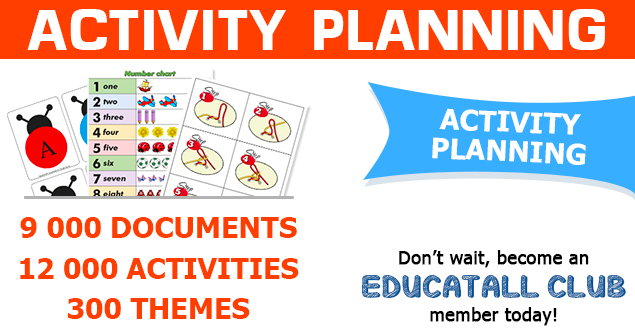
What to expect at 4 years of age
Our little one continues to grow and is now a preschooler. Slowly, he is getting closer to kindergarten. He is evolving very rapidly and major changes can be observed in all developmental spheres.
In the previous period, our three-year-old (or the adults that surround him) enjoyed a calm stage behaviour-wise. His fourth birthday marked the beginning of a period affectionately called the "ferocious fours". Much less documented than the famous "terrible twos", this phase is marked with assertiveness and argumentation. At four years old, he becomes the king of all imaginable and unimaginable arguments. Since his language skills have greatly improved, arguments, hurtful words, tantrums, and pouting will be present. Rest assured, putting a "stop" to argumentation and hurtful words early on will ensure that this necessary developmental phase is short-lived.
How do I move?
Now that I am four, I can execute most movements skillfully. I can run and ride my tricycle with ease. I can also throw and catch a ball as well as go up and down stairs with alternating legs much better. I can balance on one foot for a few seconds. I may ride a bike with training wheels, jump on one foot, skip, and walk "heel-toes" on a straight line.
In terms of fine motor skills, I have chosen my dominant hand. I can thread beads on a string, roll balls of modeling dough, and lace a perforated card. If you give me 10 tiny objects, I can hide them all in my hand. I can now grasp a pencil correctly and color within the lines of a drawing. I can draw a continuous line between two parallel lines. I am more comfortable using scissors and can therefore cut along a straight line and even cut a square.
How do I communicate?
As for my language skills, it is much easier for me to communicate. Most people understand me. I use complete sentences containing all the necessary words. I even add adjectives and linking words to make my sentences more fluid. They do however remain short, but they will slowly become longer and more complex. I am beginning to try to pronounce more complicated words. My success rate is improving. I ask a lot of questions. Why? How? When? I understand more complex concepts such as colors, spatial concepts, first/last, and time (yesterday, today, tomorrow).
How do I play?
At four years old, I am much more interested in games. I enjoy role play and pretend games. I love games that involve rules. I may begin cooperating with others to achieve a common goal, but this will improve next year, around my fifth birthday. I know how to share, but can still be selfish. Conflicts with others are common.
How do I understand my environment?
At four years old, I understand my environment through my own personal perspective. I consider my point of view very important, perhaps even the only possible point of view. I may create an imaginary friend. When I draw something, I can explain my drawing to others. I am starting to draw characters. For now, they look more like simple stick figures. I can reproduce simple constructions and basic shapes if they are drawn in front of me. I can complete puzzles with 10-15 pieces.
What should you worry about?
I continue to develop at a rapid pace. I am sure you have noticed. There are a few behaviours that may represent warning signs. They are:
- I cannot go up and down stairs without support.
- I cannot balance on one foot.
- I cannot catch a ball.
- I continue to have difficulty riding a bike or tricycle.
- I have trouble climbing play structures.
- Manipulating scissors is challenging, I cannot cut along a straight line.
- My pencil grasp remains immature (all fingers on pencil).
- I have not established a preference for one of my hands.
- I cannot draw a cross or a square.
- I have difficulty completing a puzzle with 6-8 pieces.
- I have delays in the development of my autonomy at different levels: eating, hygiene, etc.
- I have trouble understanding an adult's instructions.
- I do not answer questions or my responses are inadequate.
- I cannot name colors.
- I speak very little and have difficulty telling a story.
- My sentences are very short and I omit words.
- Others have difficulty understanding me.
- My sentences contain verb conjugation errors.
As you know, kindergarten isn't very far in my future. If you have noticed certain difficulties, discuss them with my parents to ensure I get the necessary help to guarantee I acquire all the abilities required for school.
Don't miss the next article to learn about what to expect at five years of age.
Maude Dubé, Specialized educator

 Home
Home Theme activities
Theme activities
 Babies and toddlers
Babies and toddlers
 Arts and crafts
Arts and crafts
 Science
Science
 Creative recipes
Creative recipes
 Tips and tricks
Tips and tricks
 Special needs
Special needs
 Extra activities
Extra activities
 Educ-TV
Educ-TV
 Newsletter
Newsletter  Online store
Online store Educatall club
Educatall club

